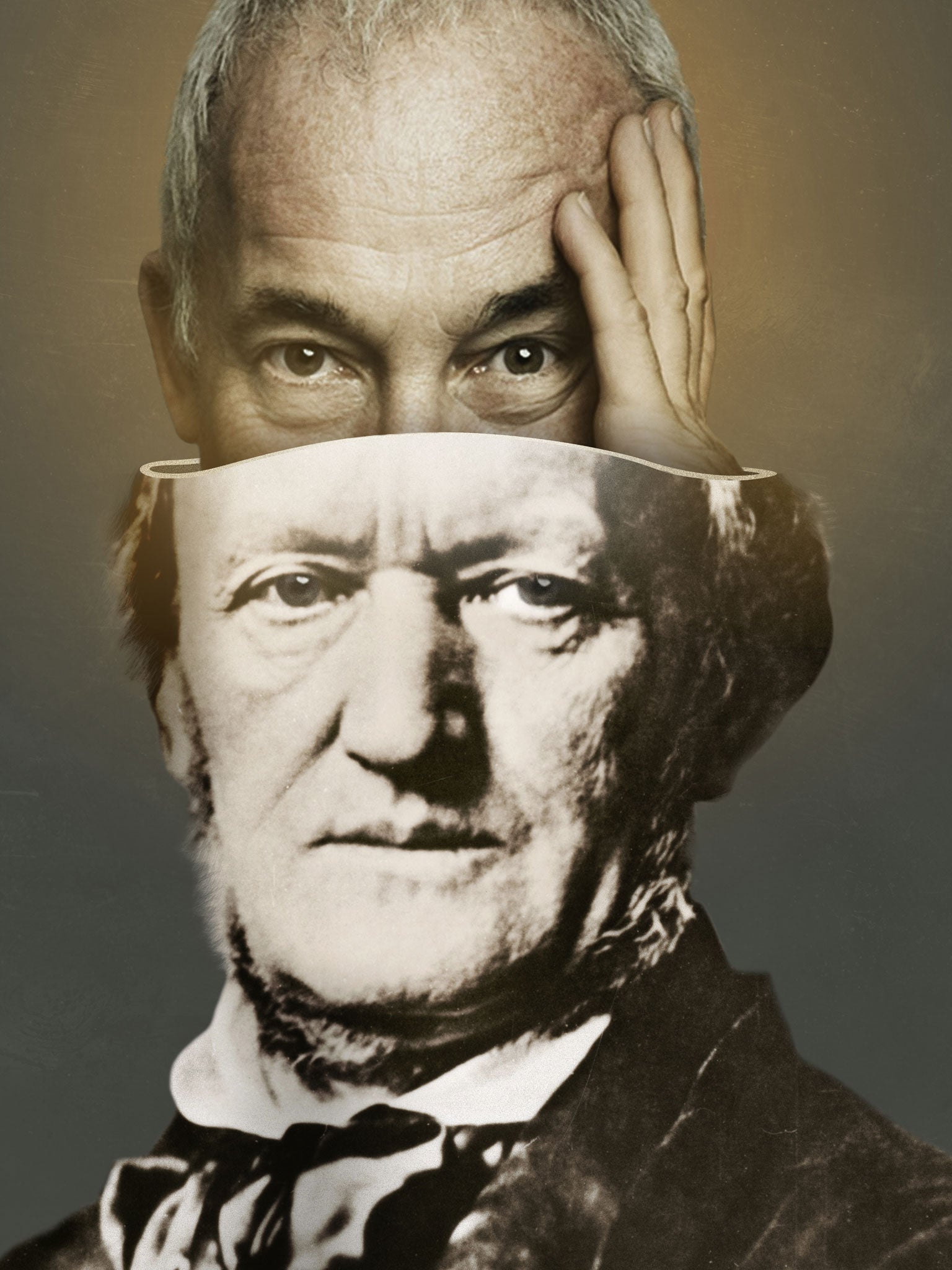Simon Callow gets inside the ‘anti-Semitic, psychotic’ head of Wagner for one-man show

The actor Simon Callow has promised to take audiences to a “dark, murky, unsettling place”, with a new one-man stage show that explores the composer Richard Wagner’s “toxic” and “disgusting” anti-Semitism.
Speaking to The Independent, Callow said that the production would confront Wagner’s hatred of Jews “head-on”. Advance promotional material for the Royal Opera House show makes clear it will be “as controversial as the man himself”.
Inside Wagner’s Head will see the actor, writer and director explore the life and work of the German composer in a similar format to his previous one-man shows on Charles Dickens and William Shakespeare.
Wagner, who died in 1883, remains a divisive figure. While few question his musical genius, a concert of his work was cancelled in Tel Aviv as recently as last year following protests.
Callow said: “The thing that makes him controversial is his anti-Semitism, which is repulsive to a degree that is almost toxic to deal with. He was a visionary, but a ruthless one, and a pretty unsavoury human in many ways. That was what made him who he was, and what drove him. It’s partly why we listen to Wagner. It takes the audience into dark, murky, unsettling places.” Callow describes Wagner’s anti-Semitism as “psychosis; it was a madness within him”.
He added: “His argument was disgusting; at the same time we have to make sense of the fact that many of his closest colleagues and friends were Jews. The fact Hitler was obsessed by him was a tragic aspect of how he came to be viewed.”
The show is more complicated than his previous works exploring Dickens and Shakespeare, Callow said, where he could quote from their books and plays. With Wagner, he cannot play or sing the music.
“That’s the challenge with this. I’m trying to show what was going on inside his brain. It concerns my fascination with monstrous personalities.”
He added: “I’m interested in showing what [the] flesh and blood of the creative artist is [and] how the creative process works.”
Callow’s research started with the composer’s 800-page autobiography: “I was reading up on him; I knew the music well, but I’d never gone into his life particularly,” he said.
To my great surprise, I found I liked him. I thought, ‘How can you like this rampantly anti-Semitic, ruthless individual?’”
Wagner’s anti-Semitism manifested itself with alarming frequency, most notably in his 1850 essay, “Judaism in Music”, in which he attempted to explain the “involuntary repellence” and “instinctive dislike” felt by others toward Jews. He later claimed: “The Jew is the plastic demon of the decline of mankind”. In 1881 he wrote to Ludwig II of Bavaria: “I hold the Jewish race to be the born enemy of pure humanity and everything noble in it.”
This year marks the 200th anniversary of Wagner’s birth, and Callow’s one-man show was commissioned by the ROH’s director of opera, Kasper Holten, as a “missionary event” with the aim of getting new audiences interested in Wagner’s music.
It forms part of a month-long contemporary arts festival in September called Deloitte Ignite, which is being curated by Stephen Fry and the Royal Opera. The show, which was initially designed to be put on in London’s West End, will now be performed in the Linbury Studio Theatre, a performance space within the Royal Opera House building in Covent Garden.
Join our commenting forum
Join thought-provoking conversations, follow other Independent readers and see their replies
Comments
Bookmark popover
Removed from bookmarks